Archaeology
-
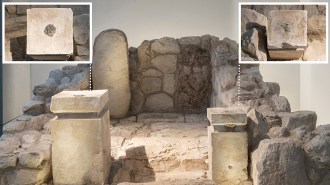 Archaeology
ArchaeologyA biblical-era Israeli shrine shows signs of the earliest ritual use of marijuana
Chemical analyses reveal a residue of cannabis and animal dung on an altar from a biblical-era fortress in use more than 2,700 years ago.
By Bruce Bower -
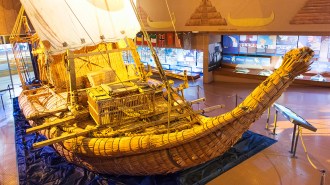 Archaeology
Archaeology50 years ago, explorer Thor Heyerdahl’s Atlantic crossing hit a snag
Explorer Thor Heyerdahl followed an aborted Atlantic voyage with a second trip that indicated ancient Egyptians could have traveled over long distances by sea.
By Bruce Bower -
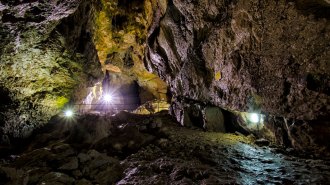 Anthropology
AnthropologyThe earliest known humans in Europe may have been found in a Bulgarian cave
New finds from Bulgaria point to a relatively rapid expansion of Homo sapiens into Eurasia starting as early as 46,000 years ago, two studies suggest.
By Bruce Bower -
 Archaeology
ArchaeologyBrewing beer may be an older craft than we realized in some places
Newly discovered microscopic signatures of malting could help archaeologists detect traces of ancient beer.
-
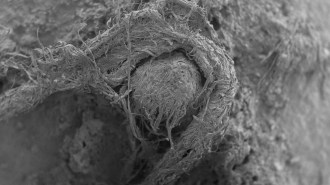 Archaeology
ArchaeologyThis is the oldest known string. It was made by a Neandertal
A cord fragment found clinging to a Neandertal’s stone tool is evidence that our close evolutionary relatives were string makers, too, scientists say.
By Bruce Bower -
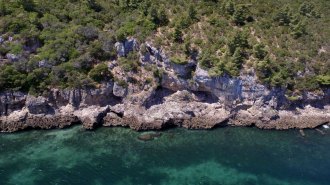 Archaeology
ArchaeologyNeandertals’ extensive seafood menu rivals that of ancient humans
Finds from a coastal cave in Portugal reveal repeated ocean foraging for this European hominid.
By Bruce Bower -
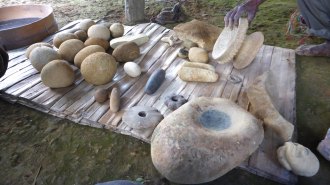 Archaeology
ArchaeologyNew Guinea’s Neolithic period may have started without outside help
Islanders on New Guinea experienced cultural changes sparked by farming about 1,000 years before Southeast Asians arrived, a study suggests.
By Bruce Bower -
 Archaeology
ArchaeologyThe Nazareth Inscription’s origins may refute ties to Jesus’ resurrection
Chemical analysis shows the tablet’s marble came from a Greek island, challenging the idea the decree concerned early Christianity in the Middle East.
By Bruce Bower -
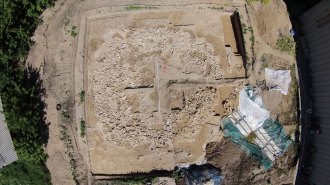 Archaeology
ArchaeologyThis is one of the largest Ice Age structures made of mammoth bones
A massive ring of mammoth bones, built by hunter-gatherers during the Ice Age, offers a peek at life 25,000 years ago.
By Bruce Bower -
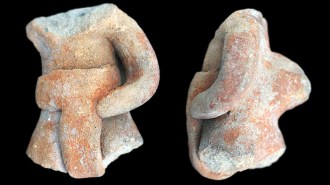 Archaeology
ArchaeologyAn ancient ball court sheds light on a game made famous by the Aztecs
A 3,400-year-old ball court in the southern mountains of Mexico suggests many societies contributed to the development of an ancient, well-known Mesoamerican ball game.
By Bruce Bower -
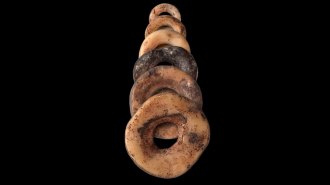 Anthropology
AnthropologyAn ancient social safety net in Africa was built on beads
A Stone Age network of communities across southern Africans was established using ostrich shell beads by around 33,000 years ago.
By Bruce Bower -
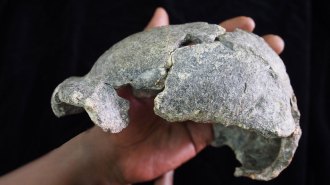 Anthropology
AnthropologyNew fossils and artifacts show Homo erectus crafted a diverse toolkit
Ancient hominid made stone tools demanding a range of skills and planning, a study finds.
By Bruce Bower